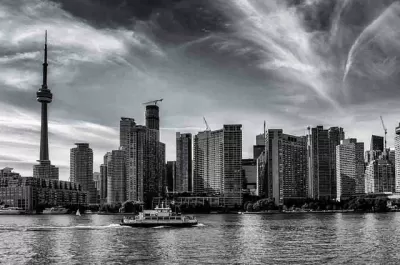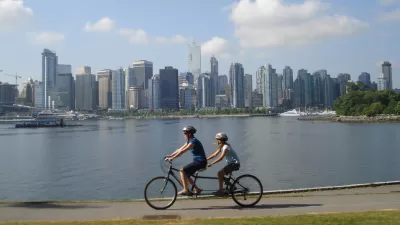Canadian cities are no strangers to rankings of the world's most functional, attractive cities. Even so, the mayors of Canada's 22 largest cities want national leaders in Ottawa to adopt an even more explicitly pro-urban national agenda.

As spread out and disparate as Canada's cities may be, they have recently found a united voice. Against the backdrop of upcoming national elections, Canada's 22 largest cities are lobbying for stronger political representation, which may, in turn, lead to more city-friendly funding and policies from Ottawa. Even Toronto and Montreal, which have been grappling with internal challenges, are cooperating. The result may be that some of the world's most highly regarded cities will get even better.
On the occasion of the lobbying trip, the Toronto Globe and Mail interviewed five mayors to discuss what they want from Ottawa.
"Growth shines a spotlight on a number of problems around how cities are financed and in particular how cities invest in infrastructure. So that is where commonality occurs with all cities across Canada. We don’t have a good system of predictable, stable, long-term revenue that helps us fund infrastructure and particularly helps us fund transportation and transit infrastructure, as well as water and waste water and housing."
"I’d like to replace property taxes on a revenue-neutral basis with a more economically smart, growth form of taxation. There are different options. There’s a municipal sales tax, which has its own challenges that would have to be addressed before I would support it. Another would be a municipal income tax. Other levels of government have long abandoned property tax as a vehicle to fuel growth. I would like cities to have skin in the game when it comes to economic development, a vested interest in ensuring there’s economic activity so they collect more revenues."
FULL STORY: Canada's big city mayors ready to push urban agenda

Alabama: Trump Terminates Settlements for Black Communities Harmed By Raw Sewage
Trump deemed the landmark civil rights agreement “illegal DEI and environmental justice policy.”

Study: Maui’s Plan to Convert Vacation Rentals to Long-Term Housing Could Cause Nearly $1 Billion Economic Loss
The plan would reduce visitor accommodation by 25% resulting in 1,900 jobs lost.

Planetizen Federal Action Tracker
A weekly monitor of how Trump’s orders and actions are impacting planners and planning in America.

Waymo Gets Permission to Map SF’s Market Street
If allowed to operate on the traffic-restricted street, Waymo’s autonomous taxis would have a leg up over ride-hailing competitors — and counter the city’s efforts to grow bike and pedestrian on the thoroughfare.

Parklet Symposium Highlights the Success of Shared Spaces
Parklets got a boost during the Covid-19 pandemic, when the concept was translated to outdoor dining programs that offered restaurants a lifeline during the shutdown.

Federal Homelessness Agency Places Entire Staff on Leave
The U.S. Interagency Council on Homelessness is the only federal agency dedicated to preventing and ending homelessness.
Urban Design for Planners 1: Software Tools
This six-course series explores essential urban design concepts using open source software and equips planners with the tools they need to participate fully in the urban design process.
Planning for Universal Design
Learn the tools for implementing Universal Design in planning regulations.
Caltrans
Smith Gee Studio
Institute for Housing and Urban Development Studies (IHS)
City of Grandview
Harvard GSD Executive Education
Toledo-Lucas County Plan Commissions
Salt Lake City
NYU Wagner Graduate School of Public Service





























